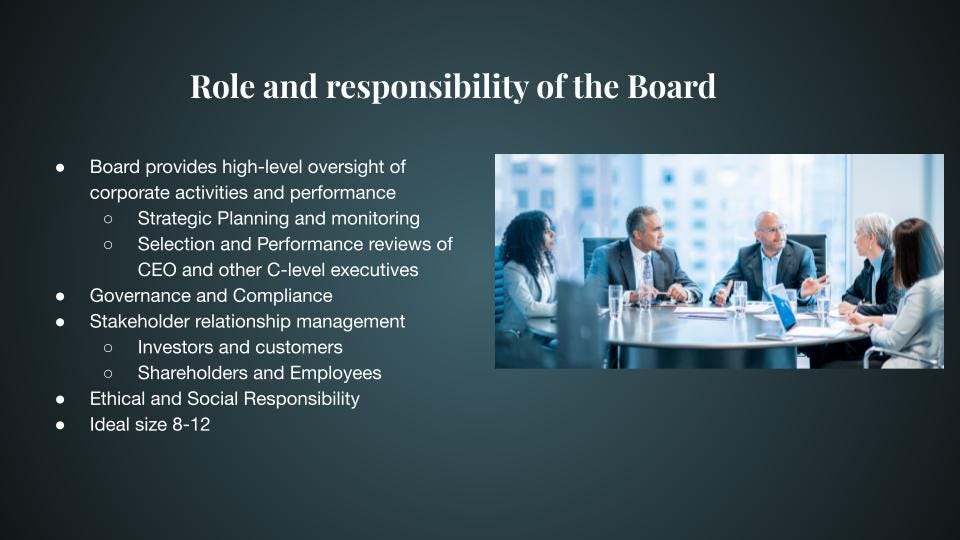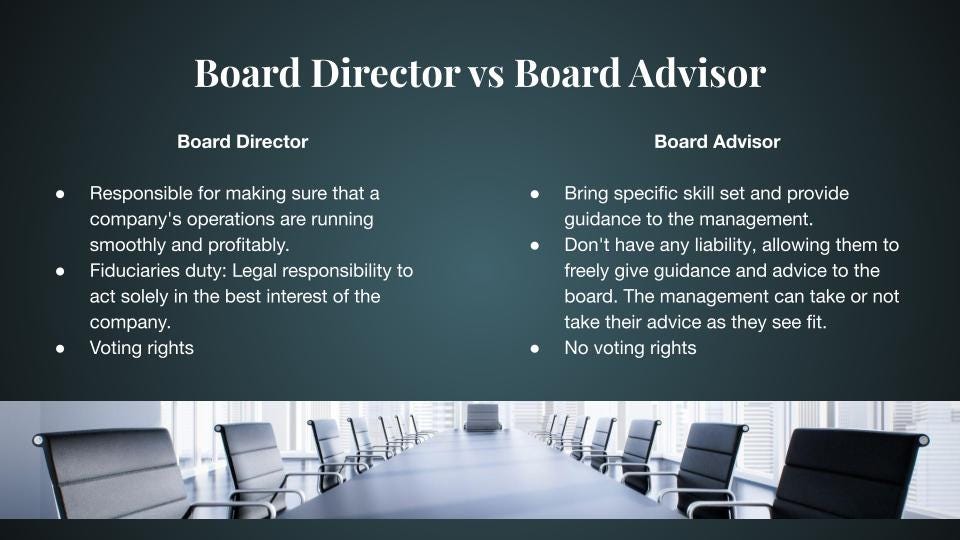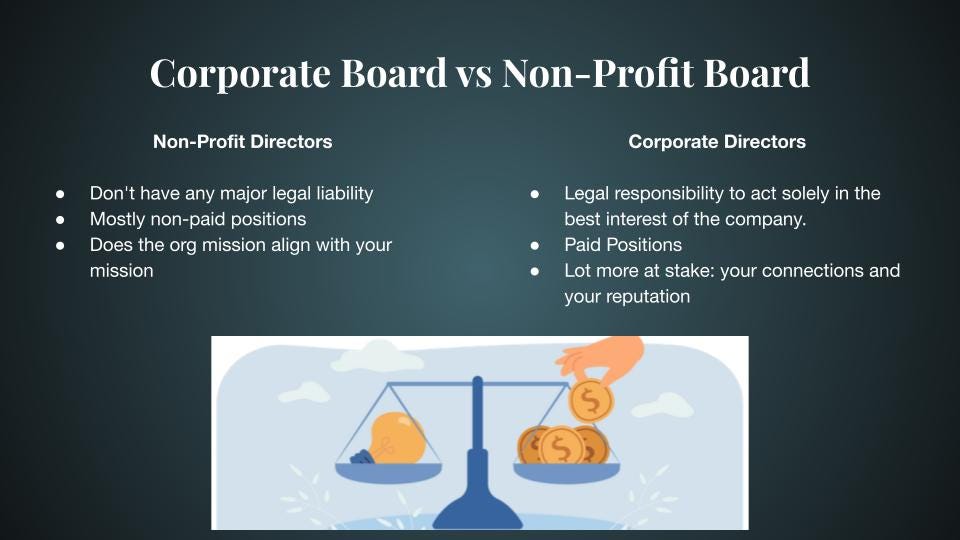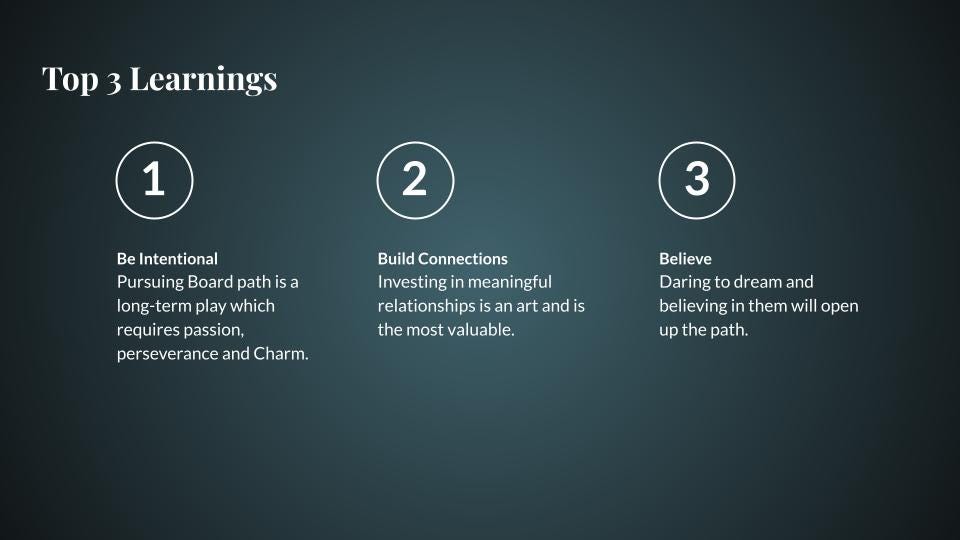#7 - How to Land a Board Position | Simi Gupta, Sr Director of Engineering at Procore
A few ideas... across the board
Hey there, Quang from Plato here! 👋
Welcome to another edition of our newsletter - where we share the wisdom of engineering leaders we’ve met in the past 7 years building Plato. Today, the topic is a bit different from what you’re used to: we won’t talk about team effectiveness, tech debt, innovation, or hiring. But the topic is still related to leadership: we invited Simi Gupta, Sr. Director of Engineering at Procore, to share her story of landing board positions at startups and nonprofits - an insightful experience that helps her in her career as a leader.
If you’re new here, here are the last three articles you missed:
Subscribe below to never miss an issue:
…but first, a bit more about Simi 👇
Simi Gupta, from a small town in India to a career in the US
Simi grew up in a small town in India. She subsequently developed her tech skills at a university based in Himachal Pradesh (JUIT) close to the Himalayas mountain range. During her undergraduate years, she ingeniously crafted an optical mark recognition device and software from the ground up. She later joined Tech Mahindra in Bangalore, before flying to the US to get her MBA while founding a startup.
In the years following, Simi climbed the ranks to become a Senior Director of Engineering and now serves at Procore Technologies. At Procore, she established a new department for Product-led Growth, devised mobile platform strategies, and led many other initiatives.
Although her career flourished in the US, Simi sensed a void left since she had left India. Growing up seeing her father’s commitment to local communities, especially in health education projects, inspired her to follow his steps. That’s when she decided to actively look for ways to give back; and joined a nonprofit specialized in helping children (We Care Children), as a board director and now is a member of the executive committee.
Since then, her commitment to making a difference has extended to serving as a board advisor and a member of the Hi-power group. Simi is poised to share her strategic insights on securing a board position, illuminating the path for others, right below!
You can follow Simi Gupta on LinkedIn.
How to land a board position as an engineering leader
There’s no shortage of articles and content that teach you how to become an engineering or technical leader, but what if your career aspirations involve joining a board? This can be a mystery, both in terms of how to get a role like this and what it involves.
In my day job, I’m the Senior Director of Engineering at Procore Technologies, but I also serve as a Board Advisor at RipeMetrics (an AI customer service and relationship management platform) and a Board Director at We Care Services for Children (a non-profit that serves socially and developmentally challenged kids through intervention programs).
In this article, I’d like to shed some light on what it means to be a board member, how you can go about getting a board member role, and what you can expect from the experience.
What do boards do? An overview
The size of the board can vary depending on the size of the organization it serves. Some boards are as small as 5 members while others are as large as 15, but the most common board size is around 8 to 12 members. Ideally, you want a board that represents a broad range of perspectives and expertise, but one that’s not so large that it’s slow and difficult to make decisions.
Boards are often divided into committees that specialize in certain areas, like program committees, governance, or executive performance committees.
There are a few main areas that boards are responsible for. These include:
Providing high-level oversight of corporate activities and performance: This can involve activities like strategic planning and monitoring as well as selecting and running performance reviews for the CEO and other C-level executives.
Governance and compliance: The board must ensure the company is following government regulations and rules.
Stakeholder relationship management: Boards must maintain communication and strong relationships with various groups, including investors, customers, shareholders, and employees.
ESG: Environmental, social, and governance (ESG) performance evaluation criteria include things like a company’s carbon emissions, water consumption, or customer privacy breaches, and boards are also responsible for holding companies accountable to these standards.
Overall, boards are held accountable for a company’s performance. If a company is not doing well financially or there are any issues in terms of risk or failure to meet regulations, the board will be held responsible (and members may be replaced).
What’s the difference between a board director and a board advisor?
Board directors are responsible for making sure that a company is running smoothly—and profitably. Board directors have fiduciary duties, which means they are legally responsible for acting solely in the best interest of the company. They also have voting rights when it comes to company decisions relating to strategy and financials. This can include things like voting on replacing the CEO, approving the budget, placing new members on the board, etc.
Board advisors, on the other hand, are specialists. They bring a specific skill set and can guide the management layer to reach a specific goal. They have limited liability, so they’re able to freely give guidance and advice on topics like strategy, specific markets, or other areas related to their subject matter expertise. The company management also can take their advice or leave it as they see fit. Advisors usually don’t have any voting rights.
It’s quite common for someone to start as a board advisor and eventually be asked to become a board director if the management thinks their advice is so valuable they want them to become a key part of decision-making or assume an executive role in the company.
What’s the difference between a corporate board and a non-profit one?
Non-profit boards have limited legal liabilities. Generally, non-profit board roles are unpaid, although some larger non-profits do pay their board members. On a non-profit board, you’ll also be expected to bring money to the organization through fundraising efforts. When considering taking a role on a non-profit board, I think it’s crucial to consider whether the organization’s mission and values align with your own.
Corporate boards have legal responsibilities to act solely in the best interest of the company and these are generally paid positions. When you take a corporate board role, there’s a lot more at stake. You’ll be leveraging your connections and putting your reputation on the line, so during interviewing organizations make sure it’s a good fit both ways.
My story: How I landed my board positions
I mentioned earlier that I currently sit on two boards—I’m a Board Advisor at RipeMetrics and a Board Director at We Care Services for Children.
Part 1: Non-profit Board Director at We Care Services for Children
I’ve always been passionate about serving the community—my father was a real inspiration for me. When I first immigrated to the US, I focused on my career, but eventually, I felt that I was missing the community contribution. I started volunteering with different organizations and was asked if I wanted to be on the board. I’ll be honest—I didn’t know exactly what that meant then and it took me some mistakes to learn how to identify an organization that was the right fit for me.
I eventually found We Care Services for Children, an organization that’s been around for six decades. I applied for the board role with them, which involved having several conversations, visiting the center, and learning more about the business. Later, I was asked to join a board meeting and meet other people on the board for them to assess whether I’d be a good fit. A few days later, they invited me to join the board. Their mission and values resonated with me, so I accepted the position. I’ve been with them since 2019 as part of the executive committee.
As a board member, I have been part of making many strategic decisions over my tenure. In 2023 alone, I was part of decisions like starting new programs, closing programs, reviewing financial performance, appointing new board members, hosting fundraising events, ensuring equal market pay for everyone, and building three- to five-year plans for the organization. We meet every month as a whole board and I have an additional meeting or two each month for my committees.
Part 2: Corporate Board Advisor at RipeMetrics
After I’d been on the We Care board for several years, I felt that I was ready to take on a corporate board role as well. Because I have expertise on how companies can leverage AI technologies more safely, I started to put the word out among my network that I was looking for the opportunity to use these skills. I joined RipeMetrics through the AdvisoryBoard forum.
My responsibilities at RipeMetrics include participating in quarterly Board Advisor meetings and being able to help the leadership team with their next goals and challenges.
I’d emphasize that choosing the right company is critical. It’s important to find a board where you’re aligned with the company’s values and feel that you’ll be getting something valuable out of participating. When I was considering different boards to join, I treated it like a job search and spent time considering whether the other board members were people I’d enjoy working with and be able to learn from.
I spend on average 12–15 hours every month on both of my board positions.
The secret sauce: Tips and tricks to landing your first board position
“If you’re aspiring to become a C-level executive, a board role can be a path toward reaching that goal because if you’re able to demonstrate your value on a board, CEOs may offer you a management role if one opens up in their company”
If after reading all this you’ve decided that you’d like to join a board, there’s still plenty of work to do. Here are a few of my tips and tricks.
Yes! YOU can be a board member
First, I want to emphasize the fact that anyone can become a board member. You don’t necessarily need to be a C-level executive in a public company to land a board role. If you’re aspiring to become a C-level executive, a board role can be a path toward reaching that goal because if you’re able to demonstrate your value on a board, CEOs may offer you a management role if one opens up in their company. It’s helpful to think of landing a board role like building your credit score—it’s a process that can take years. So if you have any interest at all, get started early.
Focus on building connections
This is a hidden industry—you don’t see board roles on job portals. Why? Because everyone is recruited through connections. Your network is how you’ll learn about and get put forward for board roles, so it’s important to start cultivating your network as early as possible. Look for people who share your values and foster those relationships. You can also be strategic about identifying people who are mega nodes (those who are especially skilled at connecting with others and already have large networks). This tip is particularly important for the introverts among us (myself included!).
Build your board resume
Your board resume will look very different from your corporate resume. This resume should focus on what you bring to the table and why you should be in the room. I believe in learning from other people's journeys and then adopting practices for myself, so I observe other board members. Find the board resumes of the members of your company’s board and learn about their journeys and the forums they are part of. Join one of the dedicated Board firms I mention in the next bullet point to see what matters for this role and how to position yourself in your resume.
Consider registering with a board search firm
While you won’t find a traditional job listing for a board role, there are many board search firms out there that you can register with. These include Advisory Board (specifically if you’re looking for an advisory role), ExecThread, and NACD (recommended).
Start interviewing organizations
Now you’re ready to start hunting for the right position. I can’t overemphasize the importance of waiting for the right role. Don’t feel obligated to take the first role that comes your way—make sure it’s an opportunity you’re genuinely excited about because most board roles require a commitment of three to four years. Just as you would when considering potential employers, take time to define your selection criteria as well as what you’d be bringing to the table.
Avoid this common pitfall: Focusing too much on the title
The biggest pitfall I’ve seen is focusing too much on the title or perceived prestige without confirming that your values are aligned with the organization. Remember: This is a give-and-take relationship. You’re giving your time—the most valuable thing you have—so you want to feel that what you’re getting in exchange is worth it. In my case, I look for learning opportunities and seek out peers from other disciplines like finance and legal whose perspectives help me grow.
Keep it out in the open and avoid conflicts of interest
As you’re evaluating opportunities, avoid any companies that could be considered direct competitors. Once you’ve decided on a specific position, ensure your current employer knows it. Most companies will have a process in place so they can vet the organization and ensure there’s no conflict of interest.
What can you expect once you become a board member?
Let’s say you’ve gone through all the steps I outlined above and you’ve landed your first board position. What can you expect in terms of time commitment and responsibilities?
As a board member, you’ll have monthly/quarterly board meetings, you’ll need to prepare for the meetings through committees, read updates on the business, track trends in the market, spend time with customers and stakeholders to understand the current needs, and look ahead for future opportunities or risks. The exact time commitment can vary, but in my experience, you’ll dedicate at least sixteen to twenty hours every month to your board duties. You will likely need extra time in the beginning to help you understand the business enough to be able to guide the management regularly.
Your regular duties will include things like advising on strategy, compliance, and risk management, but you may also need to help out during difficult times, like if the CEO needs to be replaced. This is probably one of the biggest challenges you face as a board member.
It’s not just your knowledge and experience you’re bringing to the board—you’re expected to leverage your connections as well. You will be involved in recommending potential customers, investors, and leaders to join the company. Finally, you’re expected to be an ambassador of the company. You are always looking for opportunities to get the word out about the company’s business and help in many ways to make the business successful.
A few final thoughts
If you’re still doubtful about whether you can become a board member, I’d like to leave you with some words of encouragement. You can do it and you don’t need to be a C-level executive to make this happen.
Yes! YOU can be a board member
The most important step you can take now is to start building connections. It’s never too early to start identifying and cultivating relationships with mentors and sponsors. Remember, ultimately these are the people who would put their reputation on the line to recommend you.
If you would like to explore and learn more about the board roles, then you can start with non-profits. It’s a lower-stakes setting that will still give you plenty of opportunities to learn on the job.
Ultimately, what’s most important is finding the right board position, not just any board position. This can only happen when you’ve taken the time to identify your mission and values, find an organization that’s aligned with them, and determine that what you’ll be receiving in exchange for your time will be worthwhile to you beyond simple monetary compensation. All the best!
That’s a wrap! And here come the usual asks:
If you liked the article, please share the newsletter with your friends & colleagues. It’s a great motivation for us to see our audience grow week after week!
And two quick polls about the content:













Great article - I would add finding a mission you're aligned with is key when you look for a role on a board.